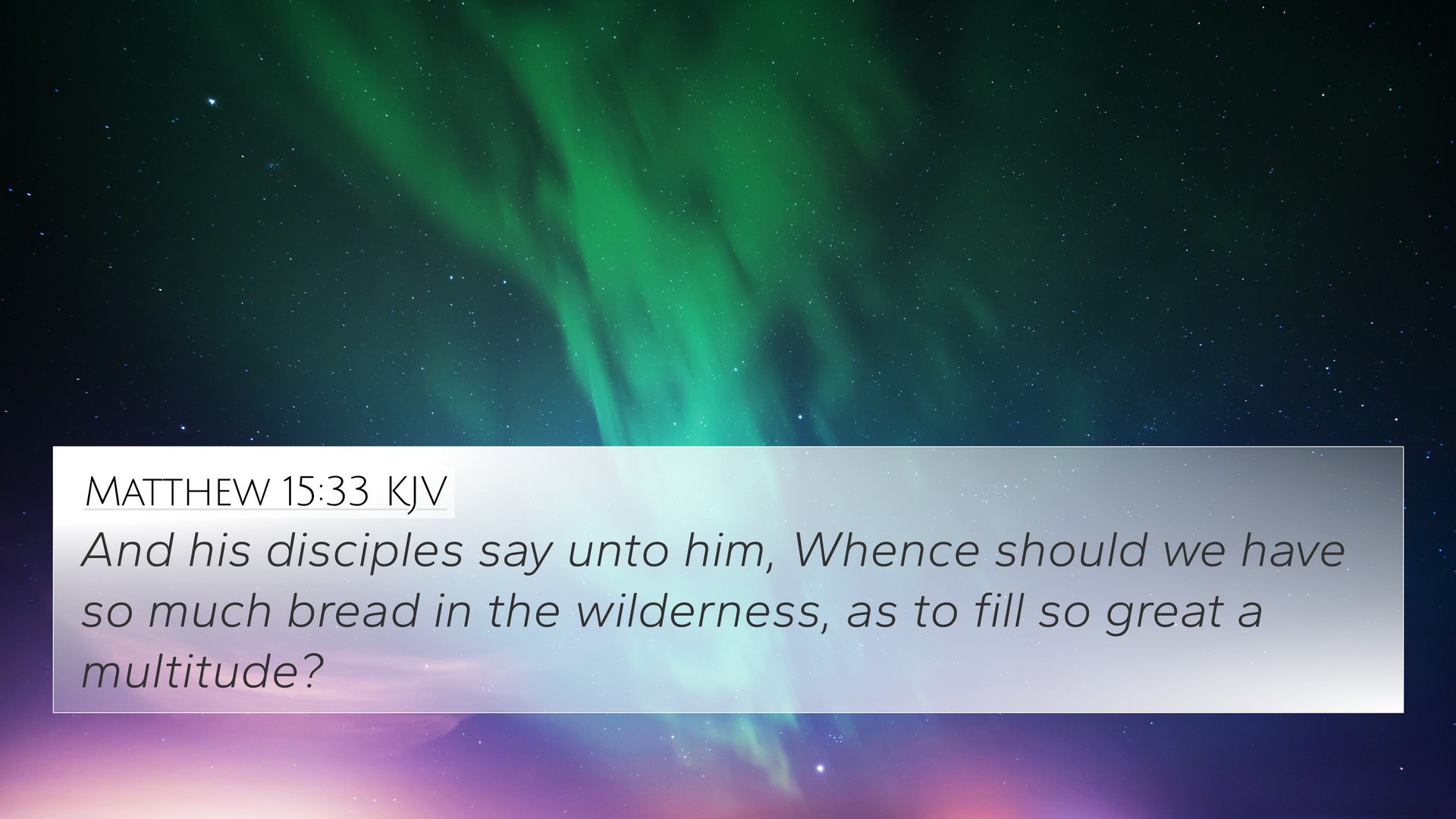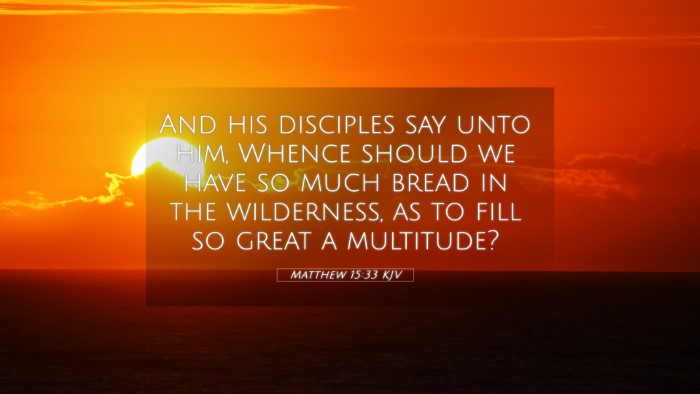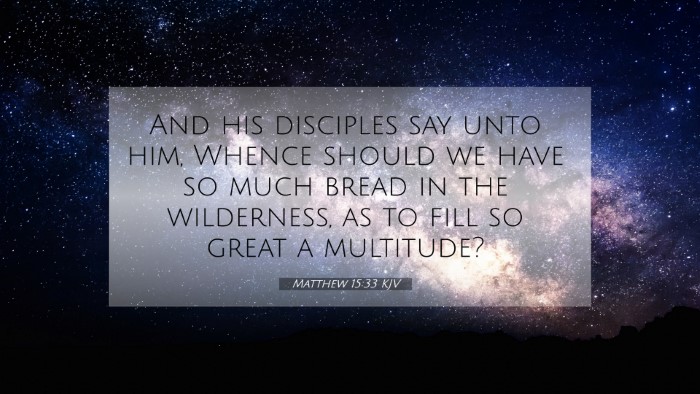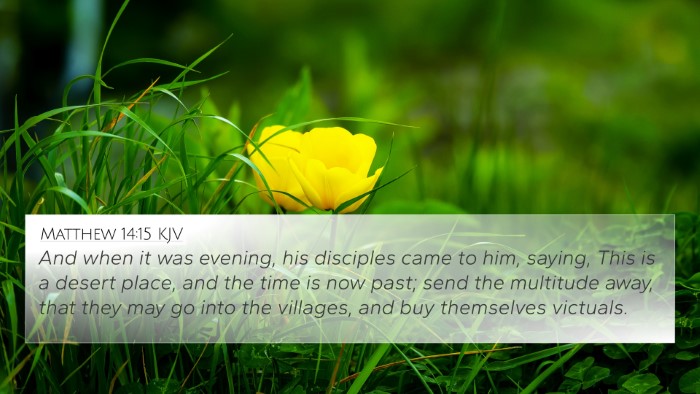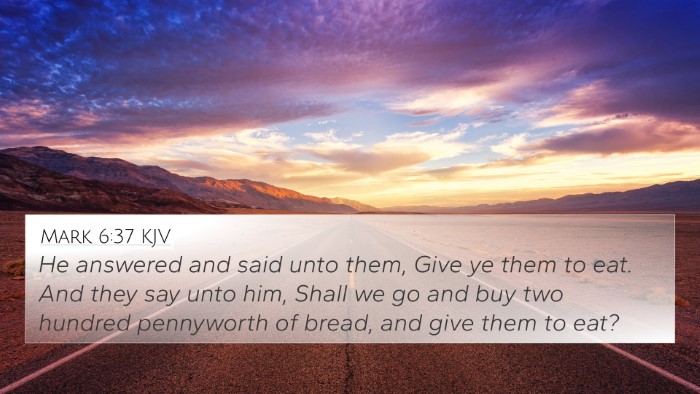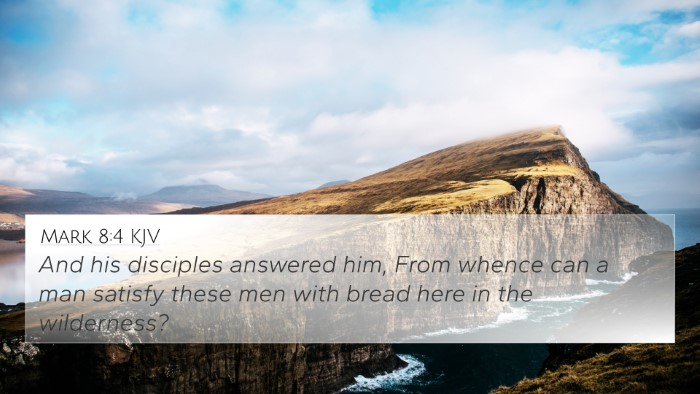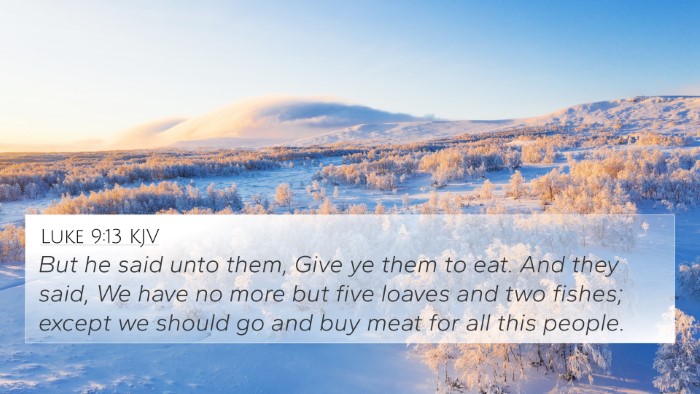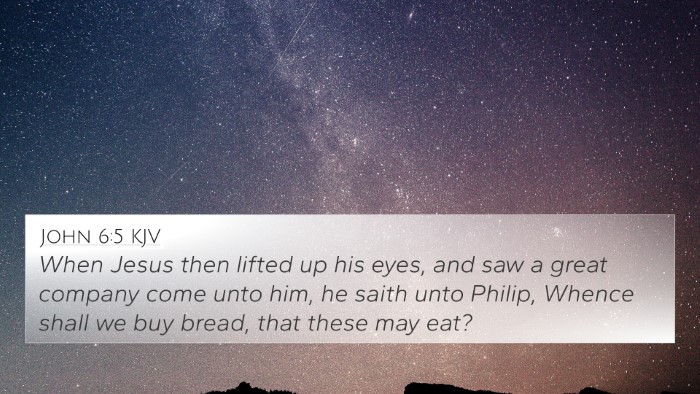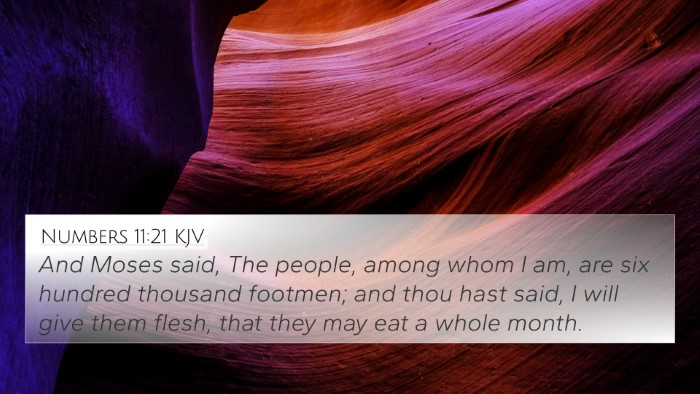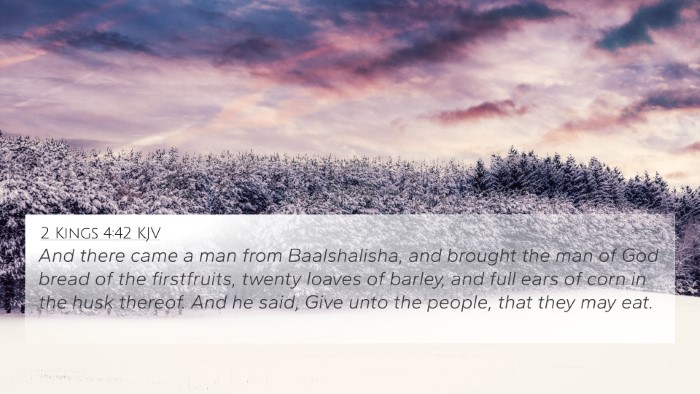Understanding Matthew 15:33
Matthew 15:33 states: "And the disciples said unto Him, Whence should we have so much bread in the wilderness, as to fill so great a multitude?" This verse highlights the disciples' concern about the scarcity of resources in a challenging environment.
Contextual Meaning
The passage occurs in the context of Jesus performing miracles, particularly the feeding of the multitude. The disciples are faced with a dilemma—how to provide for a large crowd in a desolate place. This situation underscores human limitations when confronted with overwhelming needs.
Insight from Commentaries
- Matthew Henry: Henry emphasizes the disciples' lack of faith and understanding. He notes that despite witnessing previous miracles, they still questioned where food would come from in a barren land. This illustrates a common human tendency to forget past providences in times of need.
- Albert Barnes: Barnes remarks on the illustration of human inability to meet spiritual and physical needs without divine assistance. He suggests that the disciples' question reflects a moment of doubt and the necessity of relying on Christ’s miraculous power.
- Adam Clarke: Clarke observes that the wilderness symbolizes the hardships of the Christian journey, where believers often find themselves without resources. The question posed by the disciples serves as a lesson that, in hardship, one must turn to God for provision.
Key Themes
The verse brings forth several important themes that resonate through Scripture:
- Divine Provision: The need for God’s intervention in seemingly impossible situations.
- Faith and Doubt: The struggle between trust in God’s ability and the circumstances we face.
- Community Needs: The significance of considering the welfare of others in our spiritual walk.
Bible Verse Cross-References
To better understand Matthew 15:33, here are some relevant cross-referenced Bible verses:
- Matthew 14:15-21: The feeding of the 5000, illustrating God's provision in a similar scenario.
- John 6:5-14: Details of the feeding miracles, emphasizing the power of Jesus to provide.
- 2 Corinthians 9:8: God’s ability to provide abundantly for all needs.
- Psalms 37:25: Assurance that the righteous will not be forsaken or lack bread.
- Philippians 4:19: God promises to supply all our needs according to His riches.
- Exodus 16:15: The provision of manna in the wilderness as a historical parallel.
- Matthew 7:9-11: God's readiness to give good gifts to those who ask Him.
Connections Between Bible Verses
Beyond individual verses, this scripture exemplifies the inter-Biblical dialogue regarding faith, provision, and ministry. By using tools for Bible cross-referencing, we can uncover connections such as:
- Identifying connections between Old and New Testament: The theme of divine provision runs throughout scripture, linking the stories of God's people, both in the wilderness and in their daily lives.
- Detailed cross-reference between Gospels: Each Gospel provides unique insights into the miracles of Jesus, enhancing our understanding of His compassion and power.
- Bible verses related to faith under trial: Verses like James 1:2-4 encourage believers to persevere through challenges, paralleling the disciples' predicament.
Conclusion
Matthew 15:33 serves not only as a narrative of a particular moment but also as a foundational text for understanding themes of provision, faith, and community in scripture. By cross-referencing with other biblical texts, we can see a broader picture of God's consistent care and the human condition of doubt. This encourages us in our own faith journey to seek God actively in times of need and to remember His past faithfulness.
